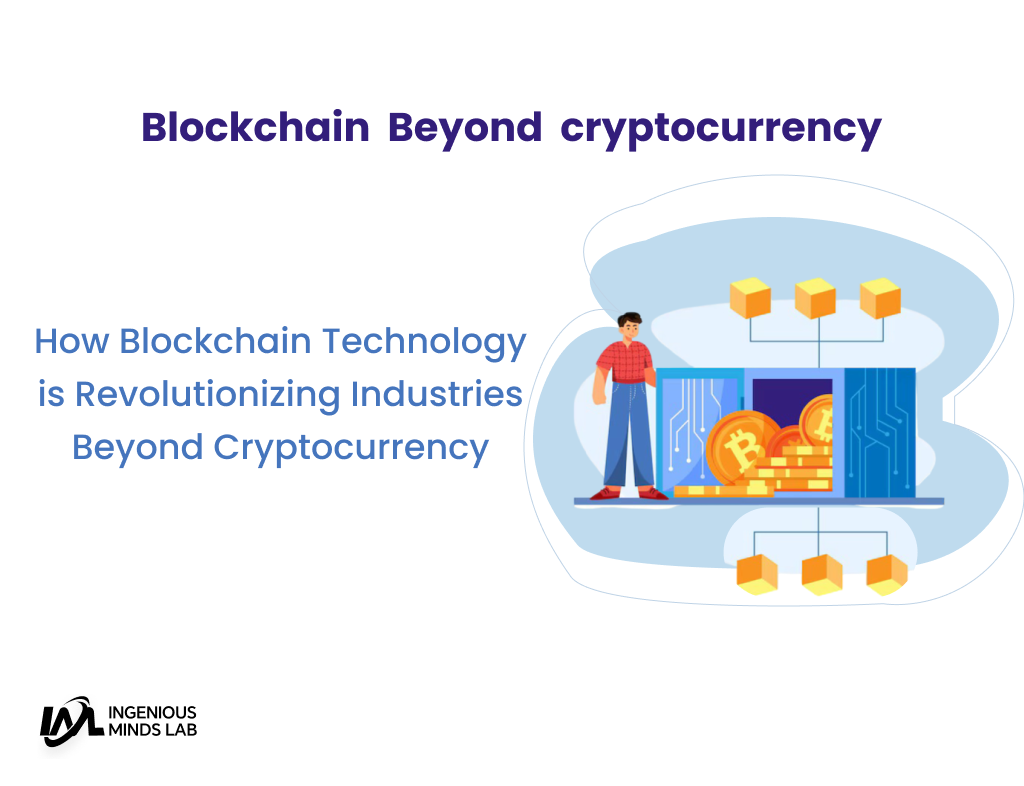How Blockchain Technology Is Revolutionizing Industries Beyond Cryptocurrency
When most people hear the term blockchain technology, their minds immediately go to Bitcoin and cryptocurrency. But blockchain’s potential goes far beyond digital money. In recent years, it has emerged as a powerful tool that’s reshaping industries by introducing a new standard for security, transparency, and decentralized control.
From finance to healthcare, and from logistics to real estate, blockchain technology is driving innovation across sectors and solving real-world challenges that traditional systems have struggled to address.
In this blog, we’ll explore how blockchain technology works, why it matters, and how it’s already making a difference across various industries.
🔍 What Is Blockchain Technology?
Blockchain technology is a decentralized, distributed ledger system that records transactions across many computers in a way that ensures the data is secure, transparent, and immutable (unchangeable).
Each record (or block) is linked to the previous one, forming a chain. This structure makes it nearly impossible to alter data retroactively without altering all subsequent blocks and gaining consensus from the network.
Unlike traditional centralized databases managed by a single entity, blockchain operates on peer-to-peer networks with no single point of failure or control.
⚙️ Key Features of Blockchain Technology
✅ 1. Decentralization
There is no central authority controlling the blockchain. Every participant in the network has access to the same version of the truth.
✅ 2. Transparency
All transactions are visible to participants. This is especially valuable in sectors like supply chain and government operations.
✅ 3. Immutability
Once data is written to a blockchain, it cannot be changed. This guarantees the integrity of records and prevents fraud.
✅ 4. Security
Blockchain uses advanced cryptographic techniques to secure data and protect transactions.
✅ 5. Smart Contracts
Self-executing contracts on the blockchain enforce rules automatically once conditions are met, reducing the need for intermediaries.
🧩 Real-World Applications of Blockchain Technology
🔹 Finance and Banking
While cryptocurrencies introduced blockchain, traditional banks are now adopting it for cross-border payments, fraud detection, and clearing settlements. Blockchain reduces transaction time from days to minutes while enhancing transparency.
🔹 Healthcare
Blockchain technology enables secure, tamper-proof storage of patient records. It can ensure continuity of care while giving patients ownership of their data.
🔹 Supply Chain Management
Tracking goods from manufacturer to consumer becomes more accurate with blockchain. Every step is recorded, making it easier to identify delays, fraud, or product recalls.
🔹 Voting Systems
Blockchain can bring transparency and trust to elections by recording votes on an immutable ledger, eliminating vote tampering and enabling real-time counting.
🔹 Real Estate
Smart contracts on the blockchain allow for faster, more secure property transactions, cutting down on paperwork and reducing fraud.
📈 Benefits of Blockchain Technology for Businesses
✔ Enhanced Trust
Blockchain’s transparent and tamper-resistant nature builds trust among users, partners, and customers.
✔ Operational Efficiency
Processes that used to take days can now happen in seconds—no middlemen, less paperwork.
✔ Reduced Costs
By eliminating intermediaries and manual verifications, blockchain reduces transaction and administrative costs.
✔ Improved Traceability
Every transaction is recorded and time-stamped, making it easier to audit, trace, or investigate.
✔ Resilience Against Cyber Attacks
The decentralized nature of blockchain removes single points of failure and makes it harder for hackers to corrupt the system.
🛠️ Blockchain Technology vs Traditional Systems
| Aspect | Traditional Systems | Blockchain Technology |
|---|---|---|
| Centralization | Central authority | Decentralized, peer-to-peer |
| Data Integrity | Prone to tampering | Immutable and verified |
| Transparency | Limited access | Public or permissioned visibility |
| Transaction Time | Hours to days | Minutes or seconds |
| Auditability | Requires manual effort | Built-in traceability |
🌍 Industry Leaders Embracing Blockchain
IBM: Provides enterprise blockchain solutions for supply chains, finance, and healthcare.
Walmart: Uses blockchain to track food products and improve supply chain safety.
Maersk: Partnered with IBM to digitize global trade logistics using blockchain.
Estonia: One of the first countries to integrate blockchain into public services and governance.
JPMorgan Chase: Developed its own digital currency and blockchain platform, Onyx, to streamline interbank transfers.
⚠️ Challenges in Blockchain Adoption
Despite its potential, blockchain technology still faces hurdles:
✘ Scalability Issues
Most blockchains process fewer transactions per second compared to traditional systems like Visa.
✘ Regulatory Uncertainty
The legal landscape for blockchain is still evolving, with inconsistent regulations across countries.
✘ High Energy Consumption
Proof-of-work blockchains like Bitcoin consume massive energy. However, newer models like Proof-of-Stake aim to reduce this.
✘ Integration Complexity
Integrating blockchain with legacy systems can be challenging and expensive.
✘ Lack of Awareness
Many businesses still don’t understand how blockchain works or what problems it solves.
🔮 The Future of Blockchain Technology
The future of blockchain technology looks bright as it matures and finds new applications:
Interoperability between blockchains will allow seamless data exchange.
Layer 2 solutions will improve speed and scalability.
Green blockchains will reduce environmental impact.
Decentralized Identity (DID) systems will let users own and control their personal data.
Tokenization of real-world assets will unlock new investment opportunities.
We’re likely to see blockchain become a foundational technology much like the internet—an invisible layer powering countless applications behind the scenes.
📌 Final Thoughts
Blockchain technology is more than a buzzword. It’s a powerful innovation capable of transforming industries by enhancing trust, transparency, and efficiency. While it started with cryptocurrency, its impact now reaches far beyond, offering new models for everything from business operations to personal data ownership.
As the technology evolves and becomes more accessible, businesses that embrace blockchain will be better positioned to innovate, grow, and compete in the digital economy.
Whether you’re an enterprise leader, a startup founder, or simply curious, now is the time to explore how blockchain technology can work for you.
❓ Frequently Asked Questions
Q1: Is blockchain only used for cryptocurrency?
No. Blockchain is used in supply chains, healthcare, voting systems, identity management, and more.
Q2: Can small businesses benefit from blockchain?
Yes. Blockchain can improve transparency, reduce costs, and build trust—even for small organizations.
Q3: Is blockchain technology secure?
Yes. Its cryptographic structure and decentralized consensus make it one of the most secure data systems available.

